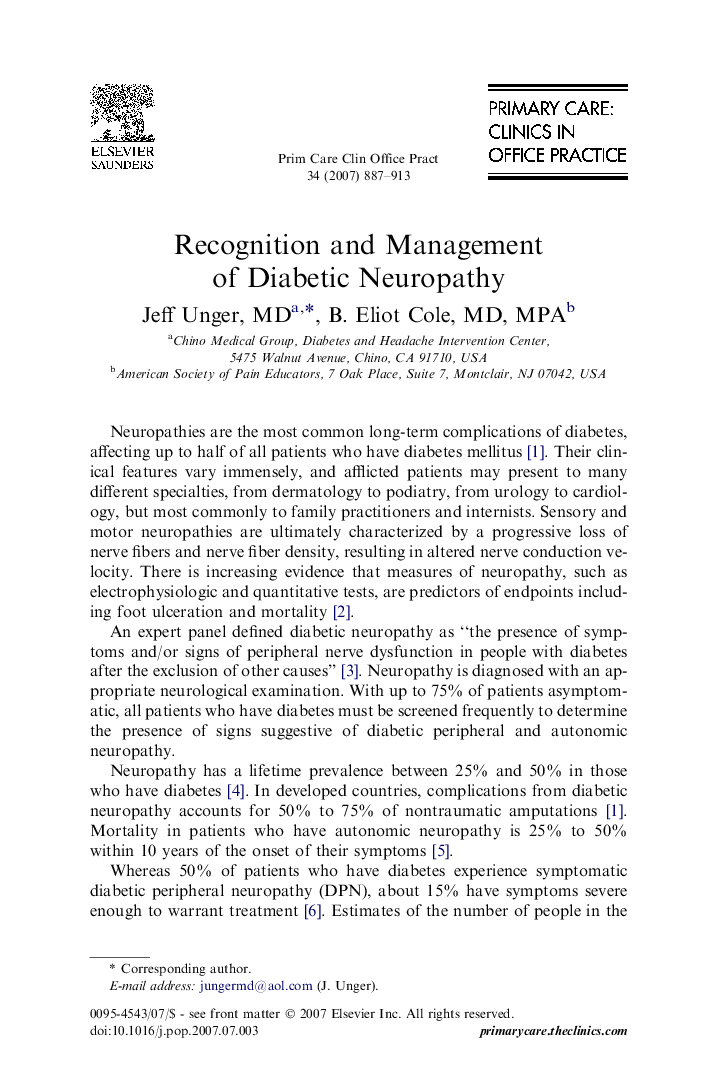| Article ID | Journal | Published Year | Pages | File Type |
|---|---|---|---|---|
| 3825801 | Primary Care: Clinics in Office Practice | 2007 | 27 Pages |
Abstract
Pain and disability associated with diabetic neuropathy have economic, social, and emotional consequences. Because these complications impact patients during the prime of their lives, physicians should screen and manage patients at risk. Improvement in glycemic and lipid management, glycemic variability, and lifestyle interventions such as smoking cessation should limit disease progression. Patients who have symptomatic disease should be treated, targeting a 50% improvement in pain within 4 weeks. Physicians should also strive to improve function and comorbidities such as sleep disorders, depression, and anxiety. Patient education is critical for treatment adherence and prevention of serious complications. Consequences associated with diabetic neuropathy include nontraumatic amputations and silent ischemia; thus proper foot care and education regarding “warning signs” of silent ischemia are necessary.
Related Topics
Health Sciences
Medicine and Dentistry
Medicine and Dentistry (General)
Authors
Jeff MD, B. Eliot MD, MPA,
